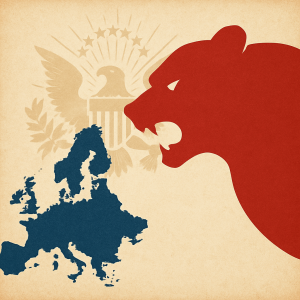Africa, first of all Africa. It was when Emmanuel Macron spoke about it at length last week in the European Parliament that it became clear that it is an urgency to develop a vision of the Union for the next ten or fifteen years and not just the programme of a six-month presidency.
In his speech, Africa was essential because if it did not manage to switch from wars and strife to a development process which would provide employment for its people, it will plunge into famine and bloodshed in entire regions. If Africa does not put an end to its misfortune, when global warming threatens it so much, flight to the North will become the only option for its people, and the waves of migration that will follow will quickly erase even the memory of 2015.
The co-development of Europe and Africa is all the more necessary as saving the planet requires a drastic reduction in commercial transport times, as Europe is obviously closer to Africa than to Asia, and as we Europeans need to find new low-cost production areas to escape Beijing’s political stranglehold.
This match will last for at least a decade, but if we fail to help Africa get over this hurdle, everything else will be in vain. Strategic autonomy, military strength, building common giants of tomorrow’s industries, none of this would matter much anymore as the African fire would soon win over us, severely weaken us and leave us more dependent than ever on China.
So, yes, if we had to retain only one thing from this speech, it would be its African moment because, from one century to the next, European unity has changed its purpose.
In the 20th century, the Communities and then the Union were a utopia, the most beautiful and necessary of pacifist utopias after a thousand years of civil wars and Auschwitz, but a chosen utopia whereas today it is an existential obligation.
The growing distance between the United States and Europe and the uncertainty that its nuclear umbrella has become, Mr Putin’s imperial nostalgia, the chaos on the other shores of the Mediterranean, the scale of the industrial challenges to be met and China’s desire to project its strength over the five continents – everything now obliges us to close ranks and unity can no longer be reduced to the humanist dream that was sung in the 1950s to the tune of “If all the lads in the world would join hands”.
In the 21st century, our unity is the only way to affirm ourselves as a political power, to continue to make ourselves heard, to not depend on foreign technologies and to not become lands of American, Russian or Chinese protectorates. That is why Africa was so important in this inaugural speech of the French presidency, but what did Emmanuel Macron say about the crisis of the moment, the one that is rising on the borders of Ukraine?
Unlike the Americans or the British, he did not make any predictions. He refrained from announcing what Vladimir Putin would do when it is by no means certain that he himself knows. He also refrained from saying what the European reactions should be facing the fact that we do not know what the Russian President will do, however, he did say what the Union should work on to avoid a complete destabilisation of the European continent.
Recalling the precedent of the Helsinki Accords, he called on the Union to define a new European security architecture to propose to Russia in consultation with the United States.
Here too, it would not happen overnight. It will also take many years and, in the immediate future, Vladimir Putin must be clearly informed of the sanctions that the United States and the Union would impose if he were to invade all or part of Ukraine. The immediate task is to set the bar high enough to ensure that these sanctions be a deterrent or that they hurt. This is underway, but whether or not the situation deteriorates, the European Union and the Russian Federation, the two pillars of the continent, will one day reach an agreement to define the conditions for their coexistence and cooperation.
Whatever Mr Putin does now, we must in other words prepare for the time when Russia will finally have to prefer dialogue to force and make up for lost time without further delay. In the short or medium term, this moment will inevitably come, because it is in the common interest of the Union and the Federation and last week, between the lines, we heard Emmanuel Macron outline the stabilisation of a continent joining forces in the co-development of the African shore of the Mediterranean, of the inner lake of Euro-Africa.
The strong-minded will say that we are far from this. They will not be wrong, but politics, the real thing, is a long-term affair, since one must know where one wants to go in order to arrive at one’s destination, and that the light is not in the middle of the tunnel but at the end.



